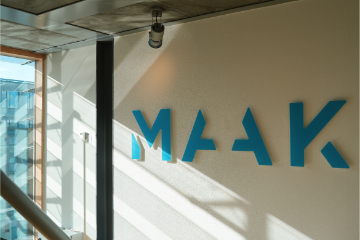Table of Contents

Distribution and agency agreements in the Netherlands are subject to Dutch and European competition laws that aim to prevent anti-competitive practices. Here are the key points regarding competition issues with such agreements:
- Article 101(1) of the Treaty on the Functioning of the European Union (TFEU) prohibits agreements that restrict competition, such as fixing prices, limiting production, sharing markets, or imposing supplementary obligations.
- The EU Vertical Block Exemption Regulation (VBER) provides exemptions from Article 101(1) for certain vertical agreements, including distribution agreements, if the parties’ combined market share does not exceed 30%.
- Above the 30% market share threshold, agreements with the object or effect of preventing, restricting or distorting competition are generally not allowed.
- Non-compete obligations in distribution agreements are exempted by the VBER if they do not exceed 5 years and do not extend beyond termination of the agreement.
- Restrictions on online sales and advertising by distributors are allowed under the VBER, provided they do not prevent effective use of the internet.
- Suppliers can restrict distributors from dealing with particular customers, unless it qualifies as an abuse of a dominant position.
- Distribution or agency agreements are unlikely to be considered reportable transactions under Dutch merger control rules, unless they indirectly lead to an acquisition of control.
- Private parties can bring actions under Dutch and EU competition laws, with available remedies including nullity of anti-competitive clauses and damages.
Dutch and EU competition laws aim to prevent anti-competitive practices in distribution and agency agreements, with exemptions and specific rules depending on the parties’ market shares and the nature of the restrictions imposed.
Understanding Dutch Distribution Agreement Regulations
How are distribution agreements governed in the Netherlands?
Distribution agreements in the Netherlands are governed by Dutch law, allowing both verbal and written execution. Dutch distribution law offers contractual freedom, emphasizing agreements based on mutually agreed terms.
Primary Competition Concerns
What are the main competition concerns in distribution agreements?
In the Netherlands, both EU and Dutch competition laws apply. Issues such as product restrictions, pricing control, and geographic limitations raise significant concerns. Distribution contracts in the Netherlands are subject to scrutiny under these regulations.
Impact of Competition Laws
How do competition laws influence supplier-distributor relationships?
The interaction between suppliers and distributors is regulated by Dutch and EU antitrust laws. While certain exemptions exist, agreements with limited market shares and without restrictive clauses are favored under the EU Vertical Block Exemption Regulation (VBER).
Enforcement and Remedies
Violating competition laws in distribution agreements in the Netherlands can have severe consequences. Here are the key points:
Nullity of Anti-Competitive Clauses
- Any clauses in a distribution agreement that violate Article 101(1) of the Treaty on the Functioning of the European Union (TFEU) or the Dutch Competition Act are automatically null and void. This includes clauses that fix prices, limit production, share markets, or impose unjustified supplementary obligations.
Fines by Competition Authorities
- The Netherlands Authority for Consumers and Markets (ACM) and the European Commission can impose heavy fines on companies for violating competition laws. Fines can be up to 10% of a company’s global annual turnover.
- Individuals involved in anti-competitive practices can also face fines up to €900,000 from the ACM.
Damages Claims by Third Parties
- Third parties, such as distributors or consumers, who have suffered harm due to anti-competitive practices can claim damages from the companies involved. This includes claims for actual loss, loss of profits, and interest.
- Private damages claims have become more common in the Netherlands following the EU Antitrust Damages Directive.
Reputational Damage
- Companies found guilty of violating competition laws can suffer significant reputational damage, which can impact their ability to attract and retain customers, suppliers, and employees.
Criminal Sanctions
- In cases of serious violations, such as hardcore cartels, individuals involved can face criminal prosecution and imprisonment for up to 6 years under the Dutch Criminal Code.
To avoid these consequences, it is crucial for companies to ensure that their distribution agreements comply with Dutch and EU competition laws, particularly regarding restrictions on pricing, territories, customers, and non-compete obligations. Seeking legal advice and conducting competition law audits can help mitigate risks.
How are competition laws enforced, and what remedies are available?
Violations of competition laws are monitored by national authorities such as the Authority for Consumers & Markets (ACM) and the European Commission. Companies breaching these laws risk fines, and affected parties may seek damages through private enforcement mechanisms.
Conclusion
Navigating competition issues in distribution and agency agreements in the Netherlands necessitates a comprehensive understanding of Dutch and EU competition laws. Adhering to these regulations ensures fair practices, benefiting both suppliers and distributors.
Dutch distribution law firm
For any legal inquiries or support in the Netherlands about competition issues with distribution and agency agreements in the Netherlands, please feel free to contact our adept team at MAAK Advocaten. Committed to excellence, our Dutch lawyers provide superior legal services tailored to your distinct needs. You can reach our law firm in the Netherlands through our website, by email, or phone.
Our approachable and skilled staff at MAAK Attorneys will be delighted to assist you, arranging a meeting with one of our specialized attorneys in the Netherlands. Whether you need a Dutch litigation attorney or a Dutch contract lawyer in Amsterdam, we are eager to guide you through the legal intricacies and secure the most favorable results for your situation.
Contact details
Remko Roosjen | attorney-at-law (‘advocaat’)
+31 (0)20 – 210 31 38
remko.roosjen@maakadvocaten.nl
The information on this legal blog serves purely for educational purposes and should not be taken as specific legal guidance. While we endeavor to maintain accurate and current information, we do not assert its absolute completeness or relevance to your particular situation. For advice tailored to your legal concerns, we urge you to engage with a licensed attorney. Please note that the blog’s content may change without notice, and we are not liable for any inaccuracies or missing information.

